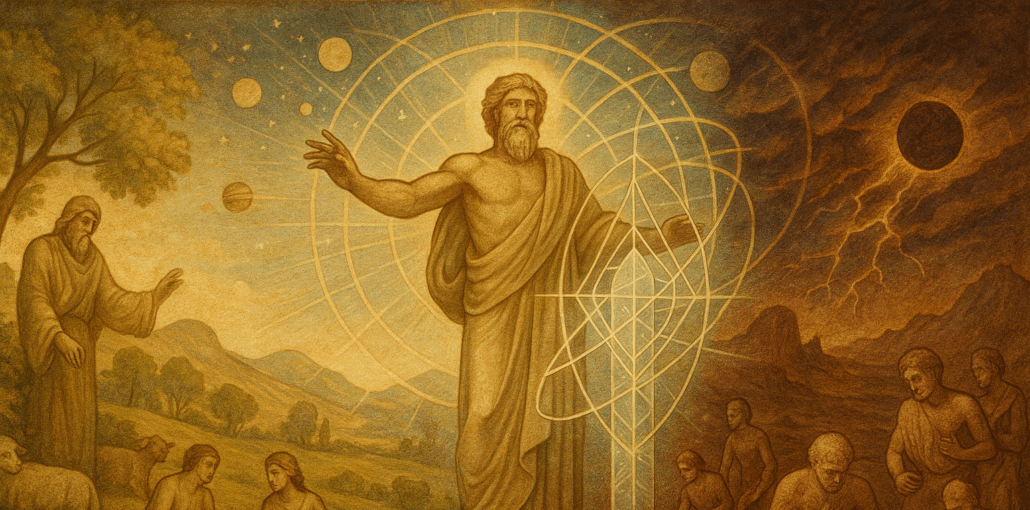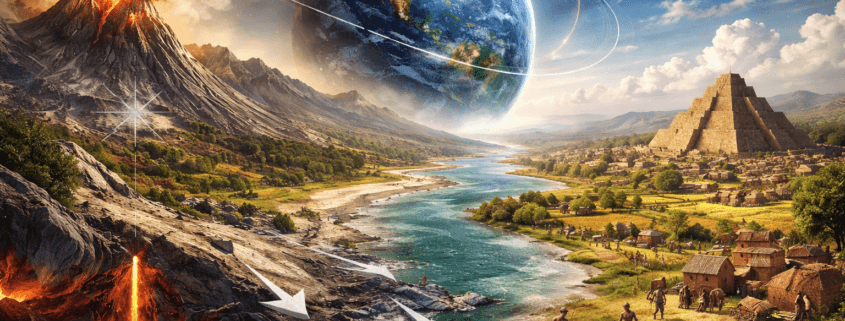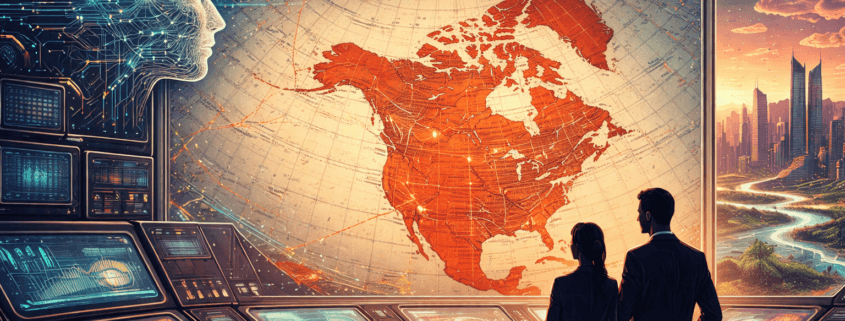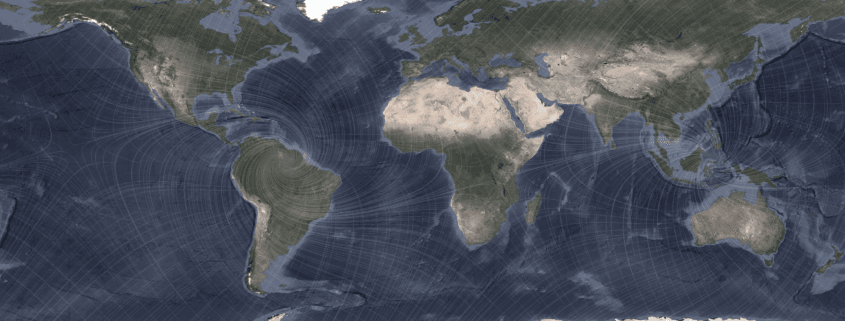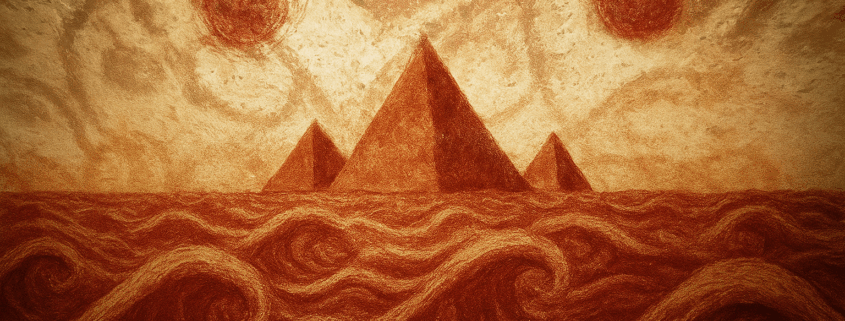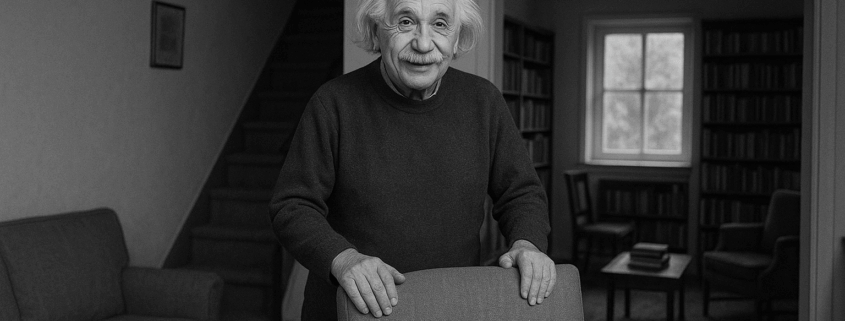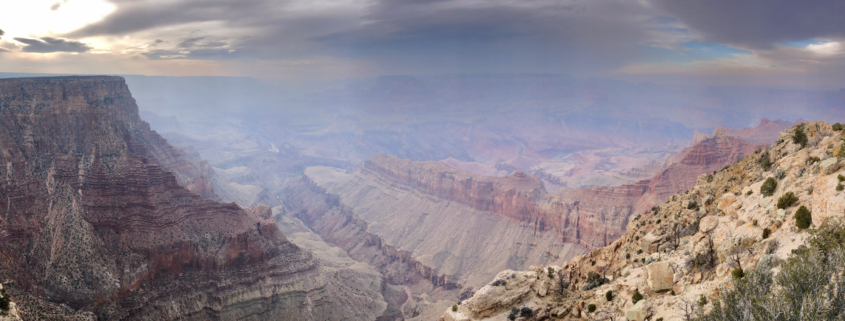The Statesman, also known as Statesman, is a Socratic dialogue written by the ancient Greek philosopher Plato. The dialogue features Socrates engaging in a discussion with an unnamed Eleatic Stranger. They explore the nature of the ideal statesman, the art of governance, and the characteristics that define a true leader, using the metaphor of weaving to describe the statesman’s role in balancing different elements of society. The dialogue also delves into cosmological and mythical narratives to illustrate the cyclical nature of the universe and its impact on human life, contrasting the reigns of Cronus and Zeus.
STRANGER: These old stories have been told before and will be told again. Among them is the one about the portent that settled the famous quarrel between Atreus and Thyestes. I expect you have heard the story and remember the details of it as they are described to us.
YOUNG SOCRATES: You refer, I suppose, to the strange sign of the golden lamb.
STRANGER: Oh no, not to that, but to the alteration in rising and setting of the sun and the other planets. The story tells us that on this famous occasion where they now set rose and where they now rose set. Afterwards, however, when he had testified by this miracle to the justice of Atreus’ claims, Zeus restored all these heavenly bodies to their present system of motion.
YOUNG SOCRATES: Yes, that comes into the story too.
STRANGER: Then again, we have heard of the reign of Cronus from many storytellers.
YOUNG SOCRATES: From most of them, I should say.
STRANGER: Yes, and what else? Are we not told that men of that former age were earthborn and not born of human parents?
YOUNG SOCRATES: That also is one of the old stories.
STRANGER: All these stories originate from the same event in cosmic history, and so do hosts of others yet more marvelous than these. However, as this great event took place so long ago, some of them have faded from man’s memory; others survive but they have become scattered and have come to be told in a way which obscures their real connection with one another. No one has related the great event of history which gives the setting of all of them; it is this event which we must now recount. Once it has been related, its relevance to our present demonstration of the nature of a king will become apparent.
YOUNG SOCRATES: Excellent, sir. Please go on, and leave nothing unsaid.
STRANGER: Listen then, and you shall hear. There is an era in which God himself assists the universe on its way and guides it by imparting its rotation to it. There is also an era in which he releases his control. He does this when its circuits under his guidance have completed the due limit of the time thereto appointed. Thereafter it begins to revolve in the contrary sense under its own impulse—for it is a living creature and has been endowed with reason by him who framed it in the beginning. Now this capacity for rotation in reverse is of necessity native to it for a reason I must tell.
YOUNG SOCRATES: Of what nature is it?
STRANGER: Ever to be of the same, steadfast and abiding, is the prerogative of the divine things only. The nature of the bodily does not entitle it to this rank. Now the heaven, or the universe as we have chosen to call it, has received many blessed gifts from him who brought it into being, but it has also been made to partake of bodily form. Hence it is impossible that it should abide forever free from change, and yet, as far as may be, its movement is uniform, invariable, and in one place. Thus it is that it has received proper motion, rotation ever in the same sense belongs to none but the lord and leader of all things that move, and even he cannot move the universe now in the one sense now in the other—for this would flout eternal decrees. For all these reasons there are many doctrines we are forbidden to affirm concerning this universe. We must not say that it moves itself, perpetually revolving in one and the same sense. We may not say that it is God who turns it in its entirety throughout all time in two opposed alternating revolutions. We may not say that a pair of divinities make it revolve alternately in these opposed senses because the mind of the one god is contrary to the mind of the other. We must therefore affirm the doctrine stated above, which is the one remaining possibility. In the one era it is assisted on its way by the transcendent divine cause, receiving a renewal of life from its creator, an immortality of his contriving. In the other era, when it has been released, it moves by its innate force and it has stored up so much momentum at the time of its release that it can revolve in the reverse sense for thousands of revolutions, because its size is so great, its balance so perfect, and the pivot on which it turns so very small.
YOUNG SOCRATES: Your whole account seems to me very consistent and very probable.
STRANGER: Let us think about this together. Let us study the great cosmic fact underlying all the miraculous stories in the light of what we have just said. It is this great fact that I have been speaking about.
YOUNG SOCRATES: What is it?
STRANGER: The fact that the revolution of the heaven is sometimes in its present sense, sometimes in the reverse sense.
YOUNG SOCRATES: How would you state its significance?
STRANGER: This change of motion must be regarded as the most important and the most complete of all ‘turnings-back’ occurring in the celestial orbits.
YOUNG SOCRATES: It would seem so.
STRANGER: We must believe then, that at the time such changes take place in the universe we human beings living within that universe have to undergo the most drastic changes also.
YOUNG SOCRATES: That is to be expected.
STRANGER: Do we not know from experience that when great changes of any kind come upon them at once, all living beings feel the strain intensely and can hardly stand it.
YOUNG SOCRATES: We do indeed.
STRANGER: So it must be that in the cosmic crisis there is widespread destruction of living creatures other than man and that only a remnant of the human race survives. Many strange new experiences befall this remnant, but there is one of deeper import than all. It follows on God’s first taking over the rewinding of the universe, at the moment when the revolution counter to the one now prevalent begins to operate.
YOUNG SOCRATES: What is it?
STRANGER: First of all, every living creature, whatever the stage of life it had attained, ceased to grow any older. All mortal beings halted on their way, bent and hoary age; and each began to grow backward, as it were, toward youth and ever greater immaturity. The white hairs of the older men began to grow dark again; the cheeks of bearded men grew smooth once more, and restored to each the long-lost bloom of his youth. The bodies of the young men lost the signs of manhood and, growing smaller every day and every night, they returned again to the condition of newborn children, being made like to them in mind as well as in body. Next they faded into nonexistence and one by one they were gone. Moreover the bodies of those who died by violence in that time of crisis exhibited these same changes—and did so with such rapidity that in their case disappearance took place within a few days.
YOUNG SOCRATES: But how did living creatures come into being in that era, sir? How did they produce their offspring?
STRANGER: Clearly, Socrates, it was no part of man’s natural endowment in that era to beget children by intercourse. Our legends tell us that upon a time there was an earthborn race. Now it was this race which at the moment of crisis began to return to life out of the earth. The memory of it has lived on, for it was handed down to us by the earliest of our forebears. These early forebears were the children of earthborn parents; they lived in the period directly following the end of the era of the earthborn, at the close of the former period of cosmic rotation and the beginning of the present one. These ancestors of ours passed on to us these stories of the earthborn, and it is an unsound judgment to disbelieve them as so many do nowadays. For I think that we must consider what follows in the cosmic story. It is only to be expected that along with the reversal of the old men’s course of life and their return to childhood, a new race of men should arise too—a new race formed from men dead and long laid in earth but now formed in her womb anew and thence returning to life once more. Such resurrection of the dead was in keeping with the cosmic change, all creation being now turned in the reverse direction. This race was, as it needs must be, ‘born from the earth’; hence comes the name and hence the legend. Birth out of the ground was the law of destiny for all of them, save for some few whom God translated to another of which you speak. Did this life obtain in the former world era or in this one? For clearly a change of direction of the sun and planets occurs at both points in history at which the universe changes its sense of rotation.
STRANGER: You have followed the story closely. As for your inquiry concerning the age when all good things come with man’s labor, not to the present one. In that era God was supreme governor in charge of the actual rotation of the universe as a whole, but divine also, and in like manner was the government of its several regions, for these were all portioned out to be provinces under the surveillance of tutelary deities. Over every herd of living creatures throughout all tribes was set a heavenly daemon to be its shepherd. Each of them was all in all to his flock—providing for the needs of all his charges. So it befell that savagery was nowhere to be found nor preying of creature on creature; nor did war rage nor any strife whatsoever. There were numberless consequences of this divine ordering of the world, but we must leave them all aside save those concerning man, for we must go on to explain the origin of our traditions concerning man’s life in that paradise. A god was their shepherd and had charge of them; and fed them even as men now have charge of the other creatures inferior to them—for men are closer to the divine than they. When God was shepherd there were no political constitutions and no taking of wives and begetting of children. For all men rose up anew into life out of the earth, having no memory of the former things. Instead they had fruits without stint from trees and bushes; these needed no cultivation but sprang up from the ground without man’s toil. For the most part they disported themselves in the open needing neither clothing nor couch, for the seasons were blended evenly so as to work them no hurt, and the grass which sprang up out of the earth in abundance made a soft bed for them. This is the story, Socrates, of the life of men under the government of Cronus. Our present life—said to be under the government of Zeus—you are alive to experience for yourself. But which of these two makes for greater happiness do you think? Can you give a verdict? And will you do so?
YOUNG SOCRATES: No, I cannot decide.
STRANGER: Do you want me to make a tentative decision for you?
YOUNG SOCRATES: Yes, please do.
STRANGER: The crucial question is—did the nurslings of Cronus make a right use of their time? They had abundance of leisure and were at an advantage in being able to converse with the animals as well as with one another. Did they use all these advantages to promote philosophical inquiry? As they associated with one another and with the animals, did they seek to learn from each several tribe of creatures whether its special faculties enabled it to apprehend some distinctive truth not available to the rest which it could bring as its contribution to swell the common store of wisdom? If they really did all this, it is easy to decide that the happiness of the men of that era was a thousandfold greater than ours. But if, when they had taken their fill of eating and of drinking, the discussions they had with each other and with the animals were of the kind that the surviving stories make them out to have been, then, according to my judgment at any rate, it is equally clear what our verdict must be. But be that as it may, let us leave this question aside till we find someone who can inform us accurately whether or not their hearts were set on gaining knowledge and on the true commerce of minds. But this much must be stated here, so that we may be free to proceed to the rest of the story, for it was precisely to see the age of Cronus in its true setting that we brought the whole story to life again.
For when this whole order of things had come to its destined end, there must needs be universal change once more. For the earthborn seed had by now become quite exhausted—each soul had run through its appointed number of births and had returned as seed to the earth as many times as had been ordained for it. And now the pilot of the ship of the universe—for so we may speak of it—let go the handle of its rudder and retired to his cunning tower in a place apart. Then destiny and its own inborn urge took control of the world again and reversed the revolution of it. Then the gods of the provinces, who had ruled under the greatest god, knew at once what was happening and relinquished the oversight of their regions. A shudder passed through the world at the reversing of its rotation, checked as it was between the old control and the new impulse which had turned end into beginning for it and beginning into end. This shock set up a great quaking which caused—in this crisis of the world just as in the former one—destruction of living creatures of all kinds. Then, after the interval needed for its recovery, it gained relief at last from its clamors and confusion, and attaining quiet after great upheaval it returned to its ordered course and continued in it, having control and government of itself and of all within it and remembering, so far as it was able, the instruction it had received from God, its maker and its father. At first it remembered his instructions more clearly, but as time went on its recollection grew dim. The bodily element in its constitution was responsible for its failure. This bodily factor belonged to it in its most primitive condition, for before it came into its present order as a universe it was an utter chaos of disorder. It is from God’s act when he set it in order that it has received all the virtues it possesses, while it is from its primeval chaotic condition that all the wrongs and evils arise in it—evils which it engenders in turn in the living creatures within it. When it is guided by the divine pilot, it produces much good and but little evil in the creatures it raises and sustains. When it must travel on without God, things go well enough in the years immediately after he abandons control, but as time goes on and forgetfulness arises in it, the ancient condition of chaos also begins to assert its sway. At last, as this cosmic era draws to its close, this disorder comes to a head. The few good things it produces it corrupts with so gross a taint of evil that it hovers on the very brink of destruction, both of itself and of the creatures in it.
The God looks upon it again, he who first set it in order. Beholding it in its troubles, and anxious for it lest it sink racked by storms and confusion, and be dissolved again in the bottomless abyss of unlikeness, he takes control of the helm once more. Its former sickness he heals; what was disrupted in its former revolution under its own impulse he brings back into the way of regularity, and, so ordering and correcting it, he achieves for it agelessness and deathlessness.
This is the full tale told, but to meet our need—the delineation of the king—it is enough if we take up the earlier part of our tale. When the most recent cosmic crisis occurred and the cosmic order now existing was established, the course of man’s life stood still once more and then began to manifest changes in the opposite sense to the other cosmic crisis. Creatures which were well nigh disappeared because of their smallness began to grow again; those who were just born from the earth, stalwart in their prime of life, now grew snowy-haired and then died and returned to the earth again. Following the change in the universe, all other things had to change; and, in particular, a new law, governing conception, birth, and nurture was made binding on the whole universe—and therefore on all the creatures, for they must needs imitate its ways. For it was no longer possible for creatures to be brought to birth in the earth by the formative action of external agents. It has now been ordained that the universe must take sole responsibility and control of its course. And so by a like ruling, the same impulse bade its constituent elements achieve by their own power, so far as they might, conception, procreation, and rearing of young. We have now come to the point which the whole of this story of ours has been seeking to reach. It would take long to tell of all the changes that befell the various creatures and to tell how these arose and how they were affected, but man’s story is shorter and more relevant for us now. Bereft of the guardian care of the daemon who had governed and reared us up, we had become weak and helpless, and we began to be ravaged by wild beasts—for the many evil-natured beasts had by now turned savage. Men lacked all tools and all crafts in the early years. The earth no longer supplied their food spontaneously; in the absence of necessity they had never been made to learn this.
For all these reasons they were in dire straits. It was to meet this need that the gifts of the gods famous in ancient story were given, along with such teaching and instruction as was indispensable. Fire was the gift of Prometheus, the secrets of the crafts were made known by Hephaestus and his partner in craftsmanship, and seeds and plants were made known by other gods. From these gifts everything has come which has furnished human life since the divine guardianship of men ceased—in the way our story has just described—and men had to manage their lives and fend for themselves in the same way as the whole universe was forced to do. Thus likened to the universe and following its destiny through all time, our life and our begetting are now on this wise now on that.


